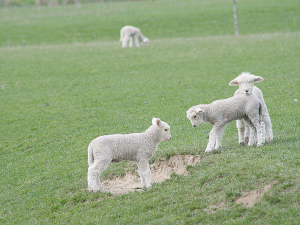Q: Are feed covers low (e.g. under 1000kg drymatter/hectare) in early spring? Are lambs in mid lactation 'hardening up,' although ewe condition is holding?
Yes. Avoid weaning lambs as their pasture intake is still low. Consider silage/ baleage supplements to get ewes through this pinch period. Consider selling ewes with lambs at foot to free up feed, especially if a feed surplus is unlikely to eventuate. Next year save more feed and consider applying nitrogen to boost growth. Consider later lambing.
Q: Are ewes in late lactation below target weight for next seasons tupping, and will it be costly/difficult to get them to gain weight over summer?
Yes. Wean. It is likely that lamb growth might also be low and less impacted by weaning.
No. Ewes can keep lactating.
Q: Are ewes competing with lambs for feed on the lambing blocks e.g. single lambs are growing less than 150-200 grams/head/day in late lactation?
Yes. Consider weaning, especially if saved feed is available for lambs e.g. brassica. They may grow faster after weaning with a higher intake and feed quality.
No. Don't wean. Lambs are growing well and will do better with milk and pasture.
Q: Are lambs prime but growing too slowly to beat the weekly processing plant schedule price drop (i.e. their $ value/head is not increasing each week)?
Yes. Wean and sell and put feed into other stock.
No. Lambs are increasing in value each week so it pays to keep them on the ewes to make more money. The ewes must not be losing weight, as it may be costly to put weight back on them.

















